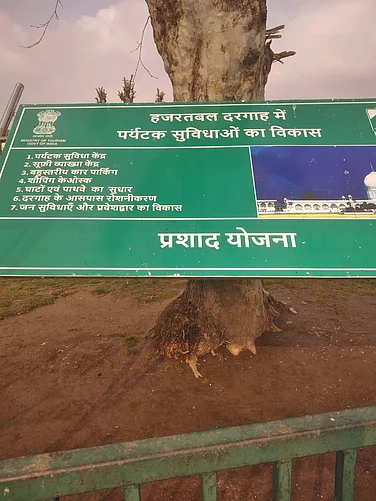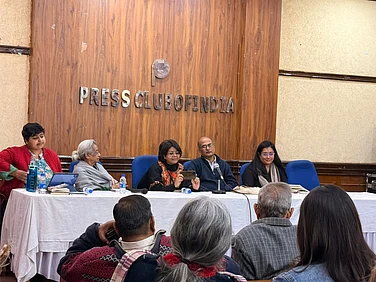And a denial seems quite possible with politicians on both sides rapidly working out permutations. Of the 320 seats in Madhya Pradesh, 90 are in Chattisgarh and this election will decide the 90 who are to sit in the new Chattisgarh assembly. A lot of things can go wrong even as the bill is likely to be introduced in the winter session of Parliament. For instance, if the BJP gets a majority in the rest of Madhya Pradesh, but not in Chattisgarh, it will obviously stall the bill as the party is hardly expected to carve out a state and gift it to Congress. The Congress would also hedge and stall in a similar situation.
Former Congress chief minister Shyama Charan Shukla has already opposed the bifurcation and even Digvijay knows it may not be the right move. He maintains a stoic silence when asked anything on Chattisgarh.
According to observers, a most peculiar situation may emerge if either party were to net a simple majority of 162 out of 320 and a majority of these seats come from Chattisgarh—it seems a likelihood in the BJP's case. Either party would then be reduced to a minority in the 230-member rest-of-MP assembly. Would the BJP then keep its promise of a separate Chattisgarh?
The BJP is in a greater bind. It has to not only win but win handsomely. Chief minister aspirant Sunderlal Patwa knows this. "We will make two governments with a single vote," he says. Chattisgarh may be swept with the promise of a new state, but things may not be so smooth for the party in the rest of MP. The BJP's demand for a separate state is based on a definite political logic: it has never done well in the tribal-dominated region and its loss in the 1993 assembly elections was largely because Congress bagged 54 seats here. The BJP won only 30 seats from Chattisgarh, while as many as 87 from Madhya Bharat which is now an established BJP stronghold.
The RSS has always treated Chattisgarh as a separate entity with its own president but had been unable to make much headway till it decided to adopt the demand for a separate state as late as 1995. The success in the '96 polls, repeated in '98, convinced it that a separate state was the emotive issue it required to undercut Congress.
Congress leaders, on the other hand, have never wanted a separate state, though have routinely paid lip service. Former AICC spokesman Chandulal Chandrakar from Durg adopted the demand, first raised by socialist leader Khubchand Baghal in 1967, in 1989. Tragically for Congress, even though the demand was included in its manifesto for the 1993 assembly elections, it never thought of implementing it despite being in power at the Centre and in the state. It allowed the BJP to steal the issue from right under its nose.
In January, prime minister Vajpayee promised a separate Chatisgarh state if the BJP swept all 11 Lok Sabha seats. In the event, the BJP got seven but Chattisgarh was included in the national agenda. The MP assembly has twice passed a Bill authorising separation of Chattisgarh unanimously. But once the Union cabinet took a decision in July to pursue the separation of Chattisgarh, political parties engaged in a mad rush to take the credit. While the BJP touted it as fulfillment of an election promise, Digvijay rushed to Raipur and announced it as the capital of the new state. So while the BJP claimed that the new state was granted by them, Digvijay promptly called a special session of the assembly to ratify the Union cabinet's decision.
A cabinet sub-committee under Law minister Rajendra Prasad Shukla started deliberating the transfer of power. Buildings began to be identified as prospective sites for the assembly and secretariat. A war of words broke out between Raipur and Bilaspur politicians as to where the high courts would be located. Everything but a concrete plan for sustained development of the proposed state.
Both parties have released a separate manifesto for Chattisgarh this time but seem clueless about improving the abysmal rural literacy rate of 36 per cent, sharing of mineral resources, irrigation projects and excise and entertainment taxes. Chattisgarh accounts for 47.80 per cent mineral resources with the Devbhog diamond mines capable of an annual yield worth Rs 10,000 crore yet to be exploited. On its own it will be a rich state but as BJP state president Nand Kumar Sai says: "Many bridges have to be crossed within the next month or so." Before a new set of politicians starts slicing a fresh piece of cake.


























